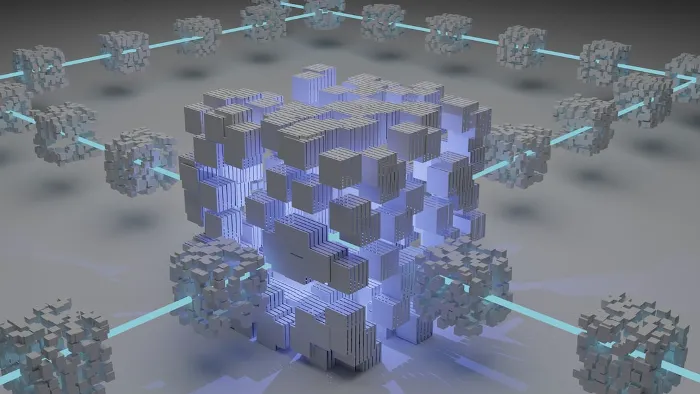Demystifying Blockchain: A Beginner's Guide to the Future of Trust

Introduction
In the rapidly evolving landscape of technology, one term that has been gaining widespread attention is "blockchain." While often associated with cryptocurrencies like Bitcoin, blockchain is a revolutionary concept with far-reaching implications beyond the realm of digital currencies. In this beginner's guide, we'll unravel the mysteries of blockchain, exploring its fundamentals, applications, and the transformative potential it holds for various industries.
What is Blockchain?
At its core, blockchain is a decentralized and distributed ledger technology that records information in a secure and transparent manner. Unlike traditional centralized systems, where a single authority governs and verifies transactions, blockchain relies on a network of computers (nodes) to collectively validate and store data. This decentralized structure ensures transparency, security, and immutability.
The Building Blocks: Blocks and Chains
Blocks: Imagine each block as a digital container that stores data. This data can represent various types of information, depending on the blockchain's purpose. For example, in the case of cryptocurrencies, a block contains transaction details such as the sender, receiver, and amount.
Chains: Blocks are linked together in chronological order to form a chain. Once a block is filled with data, it is cryptographically linked to the previous block, creating a chain of interconnected blocks. This sequential arrangement ensures the integrity of the entire transaction history.
Decentralization and Trust
One of the key strengths of blockchain lies in its decentralized nature. Traditional systems often require trust in a central authority (like banks or governments). In contrast, blockchain distributes trust across the network, making it resistant to tampering and fraud. Each participant in the network has a copy of the entire blockchain, making it practically impossible for a single entity to manipulate the data.
Applications Beyond Cryptocurrency
While blockchain gained prominence through cryptocurrencies like Bitcoin, its applications extend far beyond digital cash. Here are some areas where blockchain is making a significant impact:
Supply Chain Management: Blockchain enables end-to-end visibility in supply chains, allowing stakeholders to trace the origin and journey of products. This is particularly valuable in industries such as food and pharmaceuticals.
Smart Contracts: These are self-executing contracts with the terms of the agreement directly written into code. Smart contracts automate and enforce contract terms, reducing the need for intermediaries.
Healthcare: Blockchain can enhance the security and interoperability of health records, ensuring patient data is accurate, accessible, and tamper-proof.
Voting Systems: Blockchain has the potential to create secure and transparent voting systems, addressing concerns about election integrity.
Challenges and Future Outlook
While blockchain holds immense promise, it is not without challenges. Issues such as scalability, energy consumption (in the case of proof-of-work systems), and regulatory uncertainties are hurdles that the technology must overcome to achieve mainstream adoption.
Despite these challenges, the future of blockchain looks promising. As researchers and developers continue to refine the technology, we can expect to see innovative use cases and solutions that address current limitations.
Conclusion
In conclusion, blockchain is more than just a buzzword associated with cryptocurrencies; it's a transformative technology reshaping how we perceive and manage trust in the digital age. By providing a decentralized and transparent framework, blockchain has the potential to revolutionize industries, foster innovation, and create a more secure and trustworthy digital future. As we continue to explore the possibilities of this groundbreaking technology, the journey into the world of blockchain is only just beginning.
